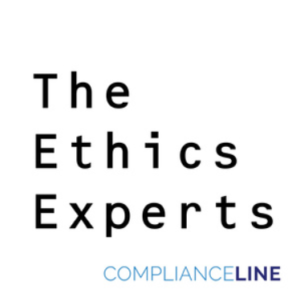This week I will be considering the role compliance and a Chief Compliance Officer (CCO) should play in a corporate Environmental, Sustainable and Governance (ESG) program. Over this series, I will explore how the StoneTurn Group, LLP (StoneTurn) ESG Framework provides a structure through which any compliance professional can create an organization necessary for an ESG program. Today we take up ESG policies and procedures.
There are numerous reasons to put some serious work into your ESG policies and procedures. They are certainly a first line of defense when stakeholders coming knocking. Having ESG policies and procedures that outline responsibilities for compliance within the company, detail proper internal controls, auditing practices, and documentation policies are critical for public companies under ESG regulatory scrutiny. The Securities and Exchange Commission (SEC) and other regulators will take a strong view against a company that does not have well thought out and articulated ESG policies and procedures; all of which are systematically reviewed and updated. Moreover, having policies written out and signed by employees provides what some consider the most vital layer of communication and acts as an internal control. Together with a signed acknowledgement, these documents can serve as evidentiary support if a future issue arises. In other words, the “Document, Document, and Document” mantra applies just as strongly to this area of anti-corruption compliance.
Additionally, a company’s ESG policies provide a basic set of guidelines for employees and others to follow. ESG policies should give general prescriptions and should be supplemented by more specific procedures. By establishing what is and what is not acceptable behavior, a company helps mitigate the risks posed by employees who might not always make the right ESG choices.
Bryan J. Sillaman and Alexandra Poe, Hughes Hubbard & Reed LLP, in an article entitled Five Steps to Establishing a Corporate ESG Policy for the Present Moment, suggested that an organization should focus their ESG policies and procedures that are “applicable generally with respect to your industry and then with greater specificity to the conditions, operations and geographic footprint of your particular company.” In the area of Environmental, that could mean your organization’s “contribution to climate change, including energy use (such as its carbon footprint and use of clean energy), waste management, pollution, resource conservation, impact to habitats and environmental remediation.” From there you could consider if your organization has opportunities to promote positive change, in reducing “energy loads, expanding organic food production, or adopting technologies that repair environmental damage.” Moreover, with the passage of the Germany Supply Chain Act and other legislation such as the UK Anti-Slavery Act, both regulators and investors “want to see companies consider their own operations and impacts arising from your supply chain.”
In the prong of Sustainability, what are your policies and procedures around conduct that affects your organization’s relationship with human communities, from employees to customers and local communities where the company operates? Obviously, social justice is a key component, but it quickly expands out to working conditions, whether a state will provide basic social and healthcare services and employ health and safety. From there it can include such disparate topics as “childcare, education, equal opportunity, pay equity, financial inclusion, job creation and social justice. Companies that make products that have the potential to harm people, like guns, toxic materials, alcohol and other addictive substances, have special considerations in this regard.” But all companies must justify having physical operations in geographic locations which will not protect employees from mass shootings or even pandemic related threats such as Covid-19 to the Delta Variant.
In the area of Governance, compliance continues to play a key role. Here consider your organization’s policies and procedures “relating to regulatory compliance and the conduct of
officers and directors and the expectations of integrity set at the top of the organization.” The concerns are as varied as ranging from “accurate and transparent financial reporting, to executive compensation practices, diversity and inclusion, and avoidance of conflicts of interest, sexual harassment and corrupt practices.” Governance policies and procedures should also evaluate the “composition of a board of directors or executive teams, to assess whether representatives to those bodies are well suited to address concerns of all stakeholders and potential ESG risks.”
Cowen Inc. incorporated all of these concepts into its corporate ESG Statement. In the area of Environmental, Cowen states:
Cowen recognizes that the world faces environmental challenges and is committed to promoting a healthy environment. As an organization that engages in the global financial markets, we believe that our business can and should do things to promote a positive influence in matters that improve the world.
In the area of Sustainability, Cowen states:
At Cowen, we pride ourselves in the long-standing culture of respect and empathy for our employees and the community at-large.
We employ a fair pay practice which ensures that Cowen’s pay practice is competitive with the market for the same or similar jobs, qualifications and experience.
We believe that diversity and inclusion strategies are the catalyst for success and innovation in the workplace. We believe that differing opinions and lived experiences are valuable and serve to support our business overall.
Wellness, both physical and financial, is the cornerstone of our employee benefit programs. Our… programs, such as emergency back-up elder/child care, subsidized health club membership and flexible work arrangements, help employees balance work, life and family matters more effectively.
We also work to create partnerships with vendors that share a commitment to sustainability. Vendors engaged in providing products and services to Cowen are expected to act in a manner that is consistent with our Code of Business Conduct and Ethics. During vendor evaluations, Cowen takes the appropriate steps to ensure ethical business practices, labor and human rights, vendor diversification and inclusion, environmental stewardship, management systems and governance are considered.
We intend to further improve our social impact across our organization and within the greater community.
In the area of Governance, Cowen states:
Strong governance, ethical business practices and prudent risk management are critical ingredients to Cowen’s achievement of its goal for long-term value creation for shareholders and driving sustainability.
Corporate governance guidelines assist the Board in the exercise of its responsibilities and to promote the effective functioning of the Board and its committees. The Board’s goal is to oversee and direct management in building long-term value for the Company’s stockholders. In addition, the Board’s goal is to assure the strength, integrity and vitality of the Company for its customers, clients, employees and the communities in which it operates.
Cowen’s Code of Business Conduct and Ethics, which applies to all officers, employees and members of the Board, serves as the foundation for high standards of integrity and ethics, the deterrence of wrongdoing and the promotion of compliance with applicable regulations.
The Board and executive management are ultimately responsible for the review and oversight of risk at Cowen. They are supported by a risk management framework which includes committees, departments and systems which monitor, manage and report on market, liquidity and operational risk.
As we expand our ESG initiative, we will seek ways to further optimize our governance process.
Clearly a compliance function has a large role in filling out the policies and procedures to implement these statements.







